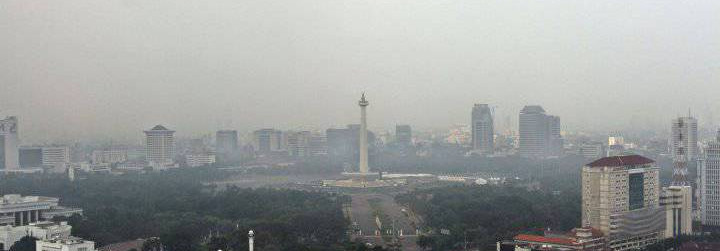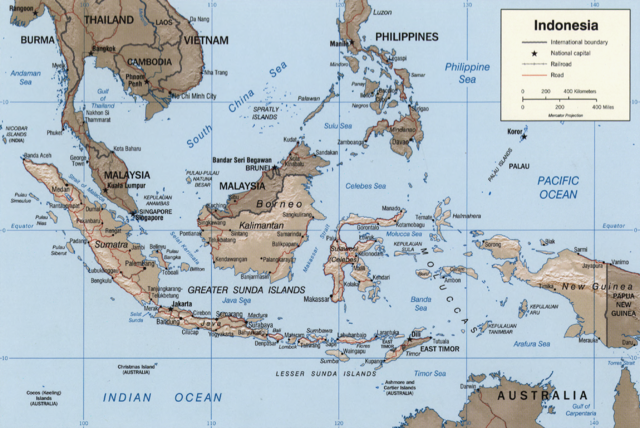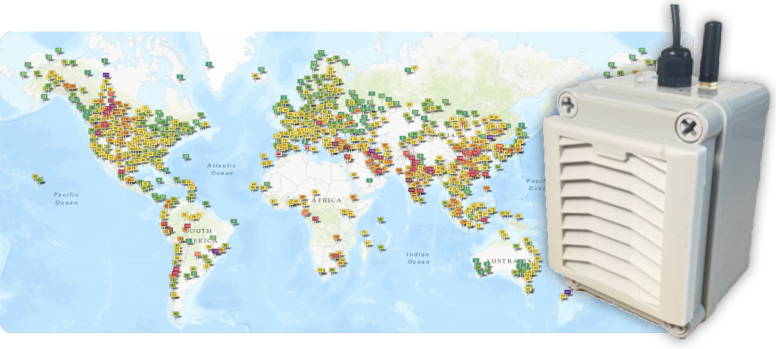| 72 | Moderate on Saturday, Dec 21st 2024, 20:00 pm |
--

Indonesia, and especially its capital Jakarta, is just subjected to Air Pollution just like any other countries in Asia.
Indonesia ranks 112nd (out of 178 countries) at the Environmental Performance Index for Air Quality (2014 score).
There are many press articles about the Air Pollution problems, especially in Jakarta, like for instance the Jakarta Globe article about "Jakarta’s Air Quality Takes a Toxic Turn for The Worse" and the Jakarta Post article about "Air pollution in city reaches alarming level" as well as this open from the JP reader forum). Some more clues can be found from this very interesting publication from Mosaic about "Where there’s smoke".
So, like most of the countries in Asia, there is no reason why there should not be real-time Air Quality monitoring in Indonesia, at least for the capital Jakarta.
But, unfortunately, there is not much information about real-time Air Quality data from the Ministry of Environment. Their website, menlh.go.id, is even displaying an "Error establishing a database connection" today. The Jakarta Environmental Board (Badan Pengelola Lingkungan Hidup Daerah Propinsi DKI Jakarta) is not providing much more information either. The Jakarta Smartcity is probably the place where one would expect the find the information, but that's not the case either. And last, there does not seems to be much activity from NGOs or Health funds about it (cf CAI Indonesia)
The best solution for providing real-time Air Quality information in Indonesia, and Jarkarta, would be that the Ministry of Environment to start providing the official readings. But since this can take sometimes, the aqicn.org team is now starting the "Indonesian Air Quality monitoring project".

Visible Air Pollution on Jakarta Skyline (attribution).
(Check this article for an explanation about visual air quality)
The aqicn.org R&D team is now developing a new affordable Particle Matter (PM2.5) outdoor Air Quality monitoring station, and we want to install a few of them in Phnom Penh (to start with). The station is simple to use, and requires almost no maintenance. It only requires a WIFI connection to operate (the power supply is provided by battery and solar panel).
So if you are living Jakarta, and you would like to help us, we are looking for people who can help us to host the stations. If this is you, the please fill in the form below with your contact information. Alternatively, if you are only interested in getting the real-time data, or you would like to get more information about the project, you can also subscribe to our mailing list to get the updates about the project, using the same form below.


